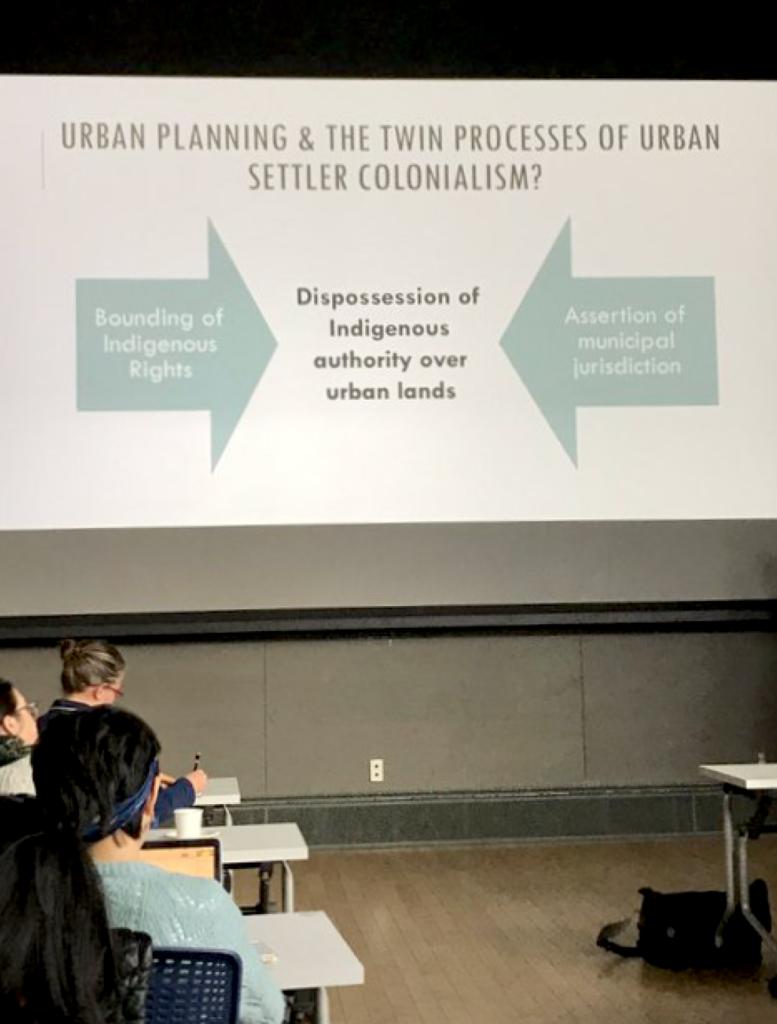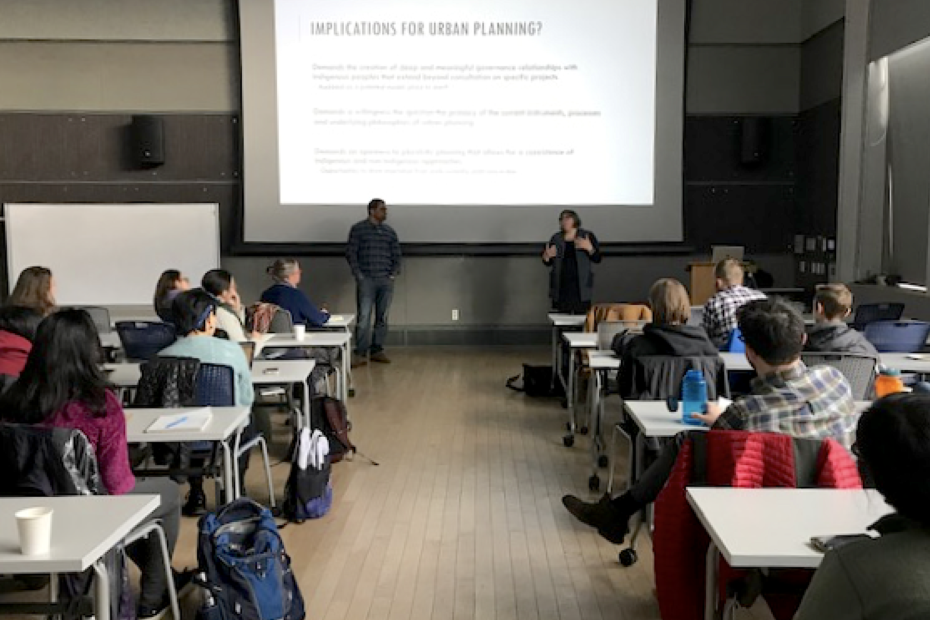On Friday, November 8th, Cities@Tufts hosted its inaugural talk, cosponsored by the Departments of Anthropology, and Race, Colonialism and Diaspora. Dr. Janice Barry of the University of Waterloo gave a talk titled “Settler Colonialism, Colonization and Urban Planning.” Dr. Barry’s work attempts to establish government-to-government collaborations between Indigenous nations and municipalities helping to raise broader questions about the possibilities for decolonizing urban planning and policy-making. Her engaging presentation covered a range of examples from Canada, Australia, and New Zealand to help entangle the links between settler colonialism and urban land claims.
The presentation began with a territorial acknowledgement, in which Dr. Barry recognized that Tufts University’s Medford campus is located on Wompanoag and Massachusett territory. Dr. Barry also shared an outline of her own ancestors’ migration patterns to Canada as a way to position herself in the wider conversation. She then went on to define and discuss settler colonialism and how this differs from the idea of colonialism we are typically familiar with. Settler colonialism refers to a pattern of settlement that specifically aims to overtake and replace indigenous populations.
Dr. Barry offered two examples of her research, one in Vancouver, British Columbia and another in Winnipeg, Manitoba. In Vancouver, the Tsleil-Waututh nation was experiencing something she termed “bounded recognition” in which their Indigenous government was framed as an adjacent body, rather than an overlapping one. This bounding prevented the nation from substantively engaging in the planning process for Metro Vancouver’s Official Community Plan. Dr. Barry explained that the nation’s government should underlie all municipal government actions, as opposed to being subject to geographical bounds.
Another example was from Winnipeg, where treaty settlement lands in urban areas are reshaping the relationship between Indigenous peoples and local governments. In the past, Indigenous populations were not granted the land settlement claims available to other settlers. Recently, First Nations have begun receiving those long overdue claims and many are claiming land in urban areas, creating “urban reserves.” In some cases, municipalities have tried to wrongly assert their jurisdiction over these new reserves, complicating land use planning in these areas. Both of these examples showed the structure of settler colonialism and how there is continued dispossession of Indigenous authority over urban lands.

Dr. Barry presented several implications these ideas have for urban planning. First, they demand meaningful, ongoing governance relationships with Indigenous peoples. There must be more than just consultation on a project-by-project basis. Second, they demand a questioning of current practices and underlying philosophies of planning. Lastly, they demand a pluralistic approach to planning which makes way for both Indigenous and non-Indengenous processes. Following Dr. Barry’s presentation, there was a lively discussion, in which both students and faculty explored the idea of settler colonialism and its intersection with urban planning. Indigenous law, higher education and indigenous lands, and examples from New England were discussed, among other topics.
Dr. Barry’s talk will be followed by another Cities@Tufts event in April 2020: The Cities@Tufts Symposium. Follow the official Twitter account for more updates.
